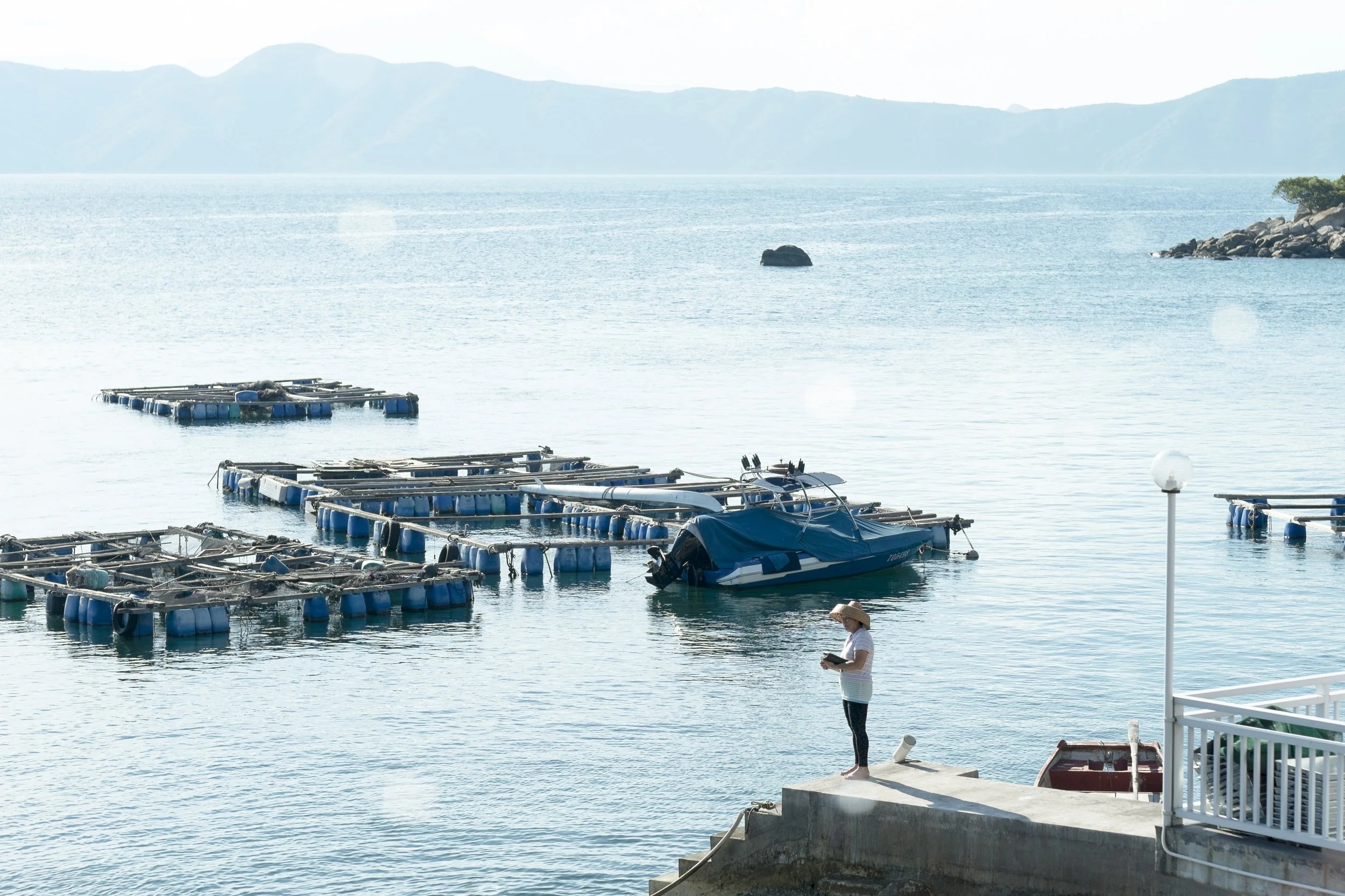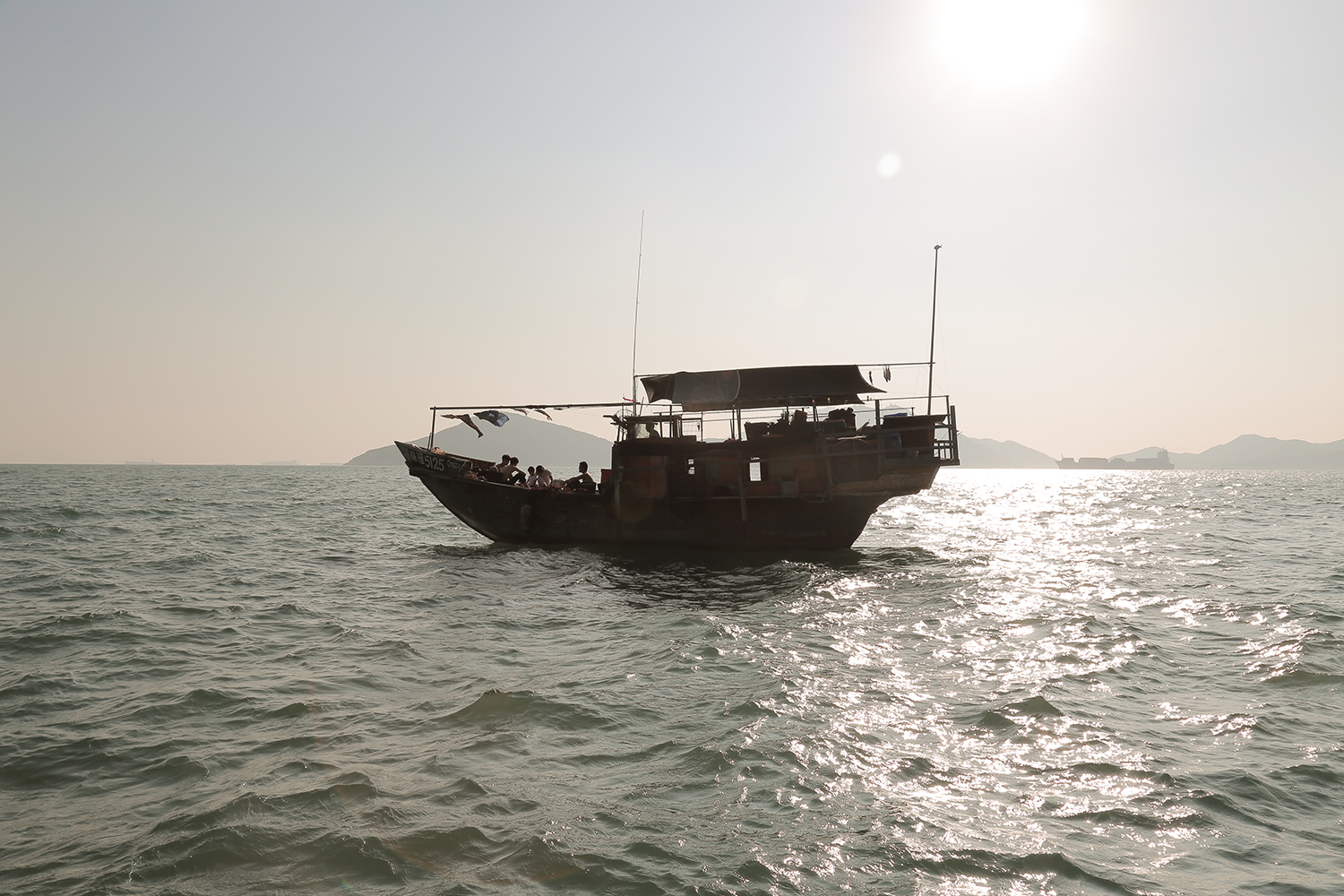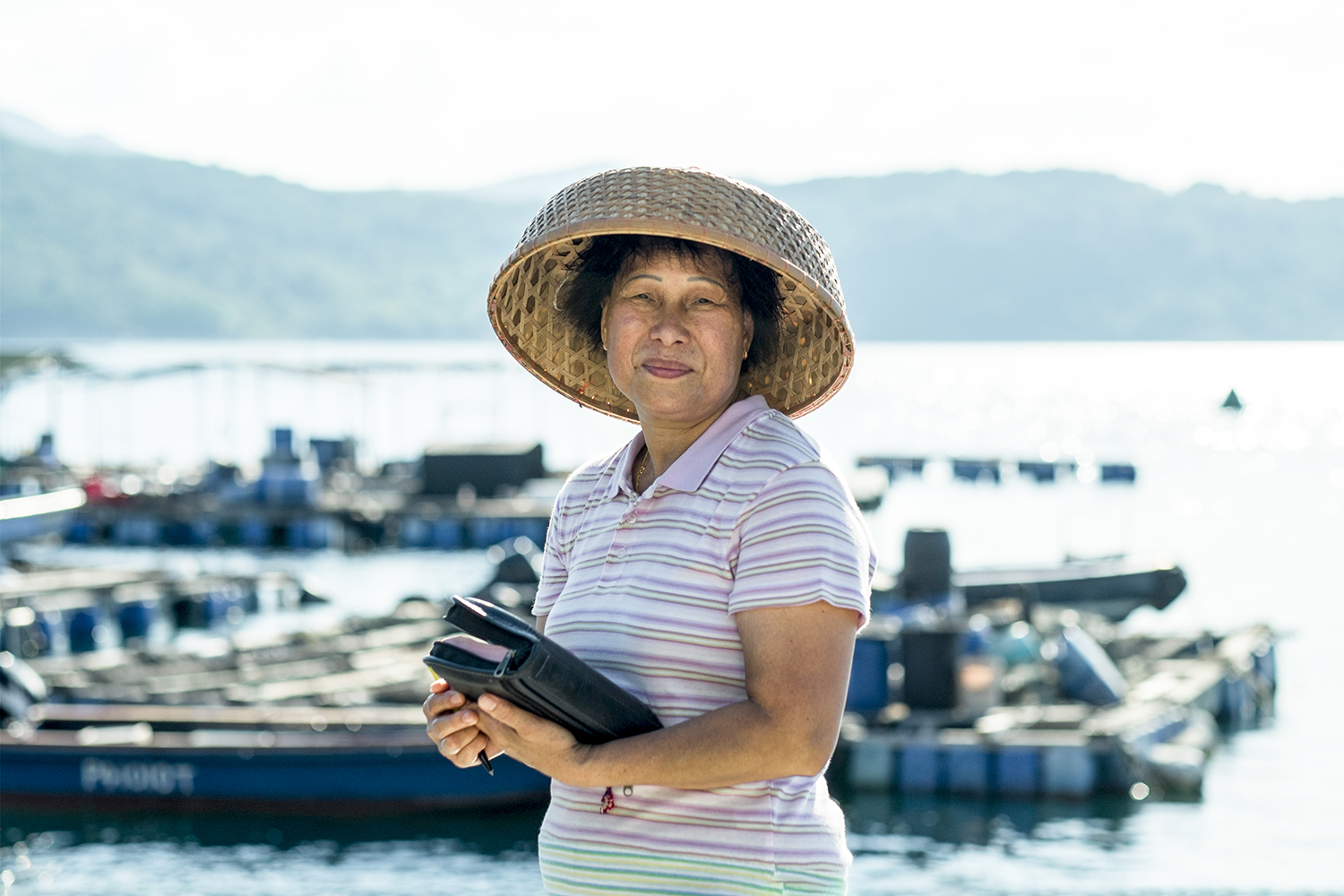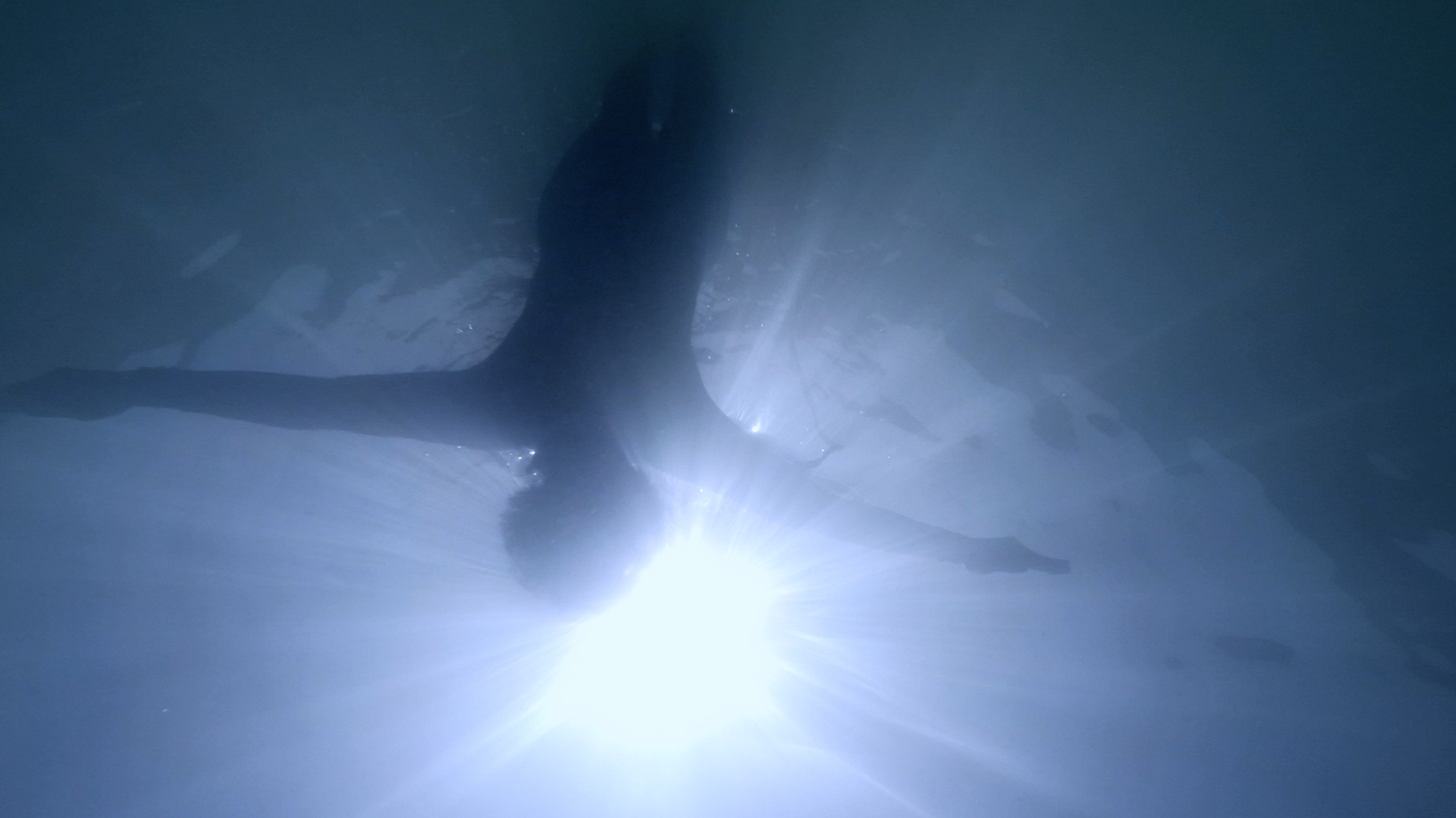Ballad on the Shore 岸上漁歌
Hong Kong / 2017 / Colour / 98 mins
In Cantonese, Tanka Dialect with Chinese & English subtitles
Dir. Chi Hang, MA
LONDON
2022 / 03 / 22 (Tue) - 8:15 PM
* Pre-recorded post-screening Q&A with the director
King's College London
BRISTOL
2022 / 04 / 05 (Tue) - 6:00 PM
* Pre-recorded post-screening Q&A with the director
Watershed, Bristol
On the small isle of Tap Mun, the ocean breeze gently lifts strands of grey hair on Lai Lin-shau’s head. He quietly sings in the characteristic tones of the fisherman’s ballads: Anchor large boats at the tip of To Nin, a sampan sends the lover to Sai See Island.....”. The melody alters with his moods and, seemingly without rules, the pitch and tones alternate and repeat themselves as if they were synchronising with the ocean waves. The lyrics of these ballads tell the stories of the trials and tribulations of the life of the fisherman. The Lai family had, for generations, fished for a living in the waters of Tap Mun, their ballads are passed down from one generation to the next, but the songs are finding fewer and fewer listeners today. Born before WWII, Mr Lai has been wed to his wife for over 60 years. He is one of the few people alive who knows the fisherman’s ballads intimately. None of his children followed the ancestral path of a fisherman, and none experienced the harsh and unforgiving life at sea. They are not even aware of his singular and priceless knowledge of the ballads.
The deeply tanned skin with a whiff of sea salt coming off their bodies are the distinctive signs of an ex-fisherman to the city dwellers. As the fishing community shrinks, they found new ways of life on land. One performs and teaches the ballads to young children; another uses the ballads to spread her Christian faith. The ballads have become a spiritual harbour for these landed fishermen and appear to offer solace and certain selective nostalgia to a life of hardship. These ballads were once part of the nautical landscape of Tap Mun and as the memories of the fishermen’s past lives fade, the words and melodies have come ashore bringing spiritual serenity to those who would hear the songs of the sea.
-
Ma Chi-hang received his B.A. in Fine Arts and M.A in Philosophy from The Chinese University of Hong Kong. Attributed to training in fine arts and philosophical thinking, his films have a thematic consistency on humanity and justice. His short film, Women Security Guard (2015) was awarded a Silver Award in Incubator for Film and Visual Media (IFVA) (Hong Kong) and made a presence in Clermont-Ferrand Short Film Festival (France). Malinois Gaze (2016), about the boredom and fantasy of a security guard, was selected for the Chinese Independent Film Festival. He then moved on to directing his own feature-length documentary films.
His first documentary film, Ballad on the Shore (2017) is reputed for its poetic handling of the disappearing culture of local fishermen. The film opens a dialogue on the unconquerable vanishes of old cultures, attracting over 50 reviews and extensive media coverage. The film was also selected for the 2016 CNEX pitching forum. In 2019, Ballad on the Shore was acclaimed by the 16th Royal Anthropology Institute Film Festival (U.K) the Intangible Cultural Film Prize and Ethnomusicological Film Award (Commendation); and in 2021 the 2nd Chinese Music Ethnographic Film Festival, on preserving intangible culture.
His recent short documentary, Elephant not for Sale (2020) depicts a robust bonding between the elephant caretaker (mahout) and the giant animals in Phuket, Thailand. His latest video Chuen Kee Ferry (2021), now showing in the public art event “Lamma Mia”, applauds the resistance and dexterity of this family-run ferry, on the verge of its retirement.
-
In Hong Kong, a highly capitalised metropolis, fishermen's culture was marginalised and fading. Cultural heritage was even treated like an old people’s mumming. In search of the forgotten songs, the director reconstructs the fishermen's history of Hong Kong. Throughout the old fishermen ballads, the fading memory was written, the wrinkling faces were frozen.
To fish in the sea for a living. To sing on the shore for a living. The fishing village is a part of Hong Kong history, however, I knew nothing about fishermen culture, their ways of life, religion and tradition. Fish village is only a tourist symbol without identity. When I first came in contact with fishermen ballads, they wereare only a mythical of sounds with no understandable meaning. However, these familiarfamilarious old voices are reacheding me from far, far away, and broughtbringing me on a voyage to the ocean in a primaeval age. Sadly, the fishermen died in the process of filmmaking, and the local cultural heritage is likely to go extinctbe distinct. When we are researching in the past, death comes in silence. Fishermen and their ballads could solely be living in the sight and sounds. I can only document their images to preserve theirthe unforgotten memory.
-
Intangible Culture Film Prize — 16th RAI Film Festival 2019
Ethnomusicology Film Award (Commendation) — 16th RAI Film Festival 2019
-
RAI Film Festival 2019
Life is Art MOViE MOViE Festival 2018
Chiayi International Art Doc Film Festival 2018 (CIADFF)
Ying E Chi Macau Film Festival 2017






